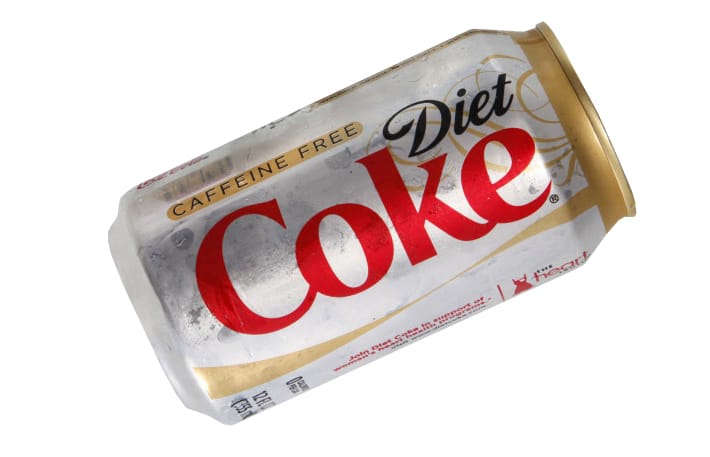LOS ANGELES — People taking part in a weight-loss program did better for 12 weeks if they drank diet soda than if they drank only water, researchers reported Tuesday.
Among the 303 dieters, the people who drank only water lost 8.4 pounds; those who drank diet soda lost 12.1 pounds, and they reported “significantly greater reduction in subjective feelings of hunger,” the researchers said in the journal Obesity.
The results, the researchers said, “should be reassuring for people who choose to consume non-nutritive sweetened beverages,” and show that they can be consumed “without concern that their weight-loss efforts will be undermined.”
Diet sodas have been in the food supply for about a half century, and there are still questions raised about whether they are helpful for people trying to lose or maintain weight. The researchers noted that several observational studies have reported an association between diet soda consumption and weight gain or higher weights.
Some nutritionists say artificial sweeteners can confuse the body with the promise of sweets, and prompt the consumption of caloric products in compensation.
In an accompanying editorial, Steven Anton of the University of Florida at Gainesville Medical School noted that research has been mixed on the use of diet soda and body weight. The current study, he wrote, had the strength of including men and women from two parts of the country, as well as various ethnic groups.
But he said that 12 weeks is a short time, “really just a preliminary look at the outcome.”
Mike Jacobson, executive director of the advocacy group Center for Science in the Public Interest, echoed that.
“This brief, 12-week study adds to the evidence that artificially sweetened beverages do not increase appetite and weight gain, though the researchers should not have published a paper until the whole yearlong study was completed,” Jacobson said.
Anton noted that although not the only factor, “a large body of evidence” shows that sugar-sweetened beverages promote weight gain in children and adults.
The dieters, with body mass indices of 27 to 40, enrolled in a one-year clinical trial at the University of Colorado and Temple University. The results reported Tuesday are from the first 12 weeks of that year.
The participants all exercised fewer than 300 minutes a week and drank at least three diet sodas a week. The two groups were put on the same program, except for their drinks. They all attended group meetings run by dietitians or psychologists, took part in weekly weigh-ins, and kept track of their hunger feelings.
The water group was asked to drink at least three cups of water a day and not drink any diet sodas. They could consume artificial sweeteners in foods, but they were asked not to add them to, for example, coffee.
The other group was asked to drink at least three cups of diet soda a day. Their water consumption was not restricted.
The American Beverage Association, a trade group that represents soft drink makers, funded the current study. That, said dietitian Andy Bellatti, raises a red flag.
“Over the past few years, I have worked with many clients who have given up diet soda and the majority of them have mentioned to me that once they ditched the artificial sweeteners, they found that their cravings for sweets significantly diminished,” he said in an email.
James Hill, one of the researchers who conducted the study and a professor of pediatrics, medicine, and physiology and biophysics at the Anschutz Medical Campus of University of Colorado, said the trade group had nothing to do with the study design or analysis, and agreed that the results would be published no matter the outcome. The results, he said, were reviewed by other scientists.
“Do people believe that we would fake the data because it is industry-funded? I think it is very fair to recognize the funding source and if people are worried they should carefully scrutinize the results,” Hill said. “I have worked my whole career to get the private sector to invest more, not less, in research. Is it ethical for companies to sell diet sodas if they do not cause weight loss? Companies need to know.”
The researchers could not identify the mechanism for the higher weight loss among the people who drank diet sodas. They said it’s plausible that because they said they felt less hungry, those dieters stuck more faithfully to the diet program.
Last week the U.S. Food and Drug Administration approved a new artificial sweetener, called advantame. There are five other noncaloric artificial sweeteners.



